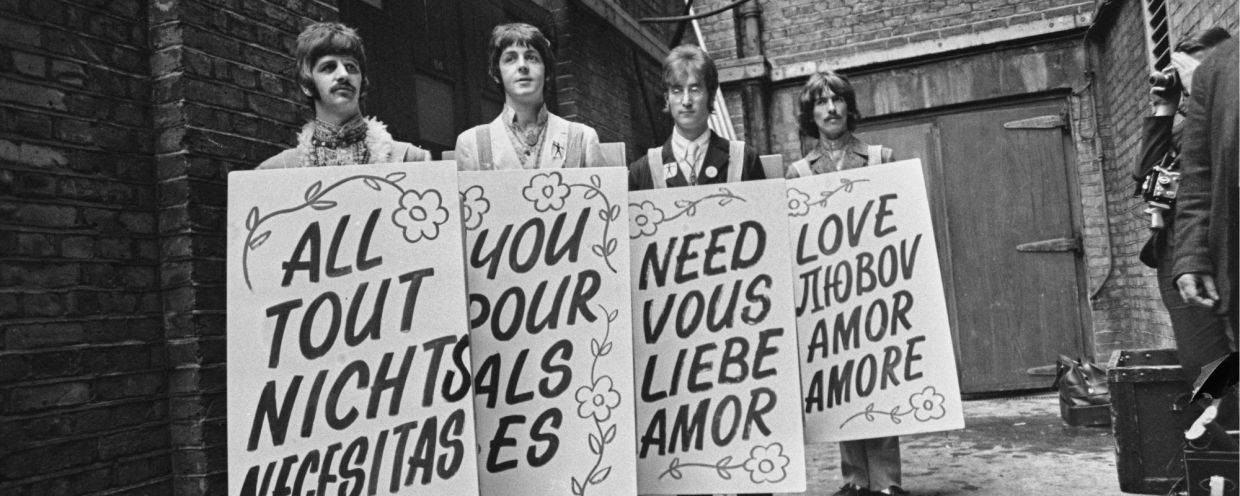Originally published in Hot Press in 2002:
Although its successor Sgt. Pepper’s Lonely Hearts Club Band made a far deeper social impact, The Beatles’ Revolver album, released a mere eight months after the monumental Rubber Soul, is now regarded almost universally as their best.
Released only three weeks before they blew out their touring routine with one last live concert at Candlestick Park in San Francisco, Revolver proved why the experimental possibilities of the recording studio proved a more attractive lure than the drudge of playing gigs that nobody could hear. The band exulted in this pending liberation and celebrated with an album of stunning diversity and inventiveness.
Lyrical subject matter went way beyond the vapid love lyrics that had dotted their early path, ranging from the bitter material concerns in the opening track ‘Taxman’ (also evidence of George Harrison’s maturity as a writer) to the spiritual odyssey of John Lennon’s ‘Tomorrow Never Knows’. Along the way you got the extraordinary elegance of ‘Eleanor Rigby’ and ‘For No One’, the rock intensity of ‘She Said She Said’ and ‘Dr Robert’, the plaintive ‘I’m Only Sleeping’ and ‘Here, There and Everywhere’, the exuberant ‘Good Day Sunshine’, the rootsy soul of ‘Got To Get You Into My Life’ and the captivating playfulness of ‘Yellow Submarine’ among other pleasures.
The music was even more eclectic, culled from both side of the east-west divide and including Indian instruments, classical strings and the astonishing use of backward tapes, drones and loops mingling with a rock ensemble par excellence. Unlike less perfect offerings, nothing here lasts as long as you’d like. The argument of ‘less is more’ was never more convincingly vindicated.
As if to reflect their flowering as four liberated individuals, the album cover for Revolver was a psychedelic sketch by their former Hamburg buddy Klaus Voorman and depicted the band as four multi-faceted but separate entities looking away from each other. The Beatles were no longer just a band but four extraordinary figures and the front cover even arrogantly omits the band’s name.
Revolver was their seventh album and it took their unprecedented artistic achievements to soaring new heights. As Paul McCartney put it, the album contained “sounds that nobody has done yet . . . ever.”
And he was right. Unlike previous Beatle albums, this sophisticated masterpiece, despite being created in a fog of mind-altering drugs, contained such nuggets of perfection that there were fewer immediate cover versions, except for Cliff Bennett and The Rebel Rousers hit version of ‘Got To Get You Into My Life’. There were subsequent versions of ‘Eleanor Rigby’ by Ray Charles and Aretha Franklin among others, and a myriad versions of ‘Here There And Everywhere.’
The album had an instant influence on all the influential bands of the period, from The Byrds to The Rolling Stones and beyond, right through to the Chemical Brothers, Oasis and Kula Shaker of our time.
Whereas ‘Taxman’ was played mostly using one chord in a conventional rock band setting, ‘Tomorrow Never Knows’, its title alone a coded promise of delights to come on later albums, and the first track recorded for the album, was created by Lennon initially to sound like the Dalai Lama singing on the highest mountain. It does, and more, with its lyrics adapted from the Tibetan Book of The Dead.
Revolver had its roots in the Beatles past while at the same time looking eagerly towards a future of unending experimentation and self-exploration. It was pop music becoming art and thirty years later it still sounds as startlingly fresh and immediate as it did on first hearing.
ODD FACT: For some perverse reason ‘I’m Only Sleeping’, ‘And Your Bird Can Sing’ and ‘Dr Robert’ were excluded from the US version of the album which then clocked in at only 27 minutes.
WHAT THEY DID NEXT: While their record company treaded water with A Collection Of Beatles Oldies, The Beatles again rewrote the rulebook with the groundbreaking single ‘Penny Lane’/‘Strawberry Fields For Ever’ before unleashing the epic Sgt Pepper’s Lonely Hearts Club Band album.



